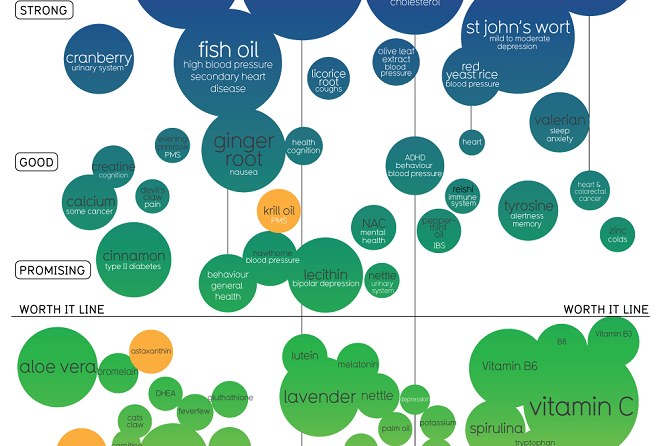Folic Acid, Omega-3 Among Popular Health Supplements Backed By Science

Certain supplements may work better — and be more worthwhile — than others, according to the infographic below, designed by data visualizers who gathered as many scientific studies as possible for each supplement. Among the common health supplements that have shown positive results in various studies are folic acid, green tea, Omega-3, probiotics, and Vitamin D.
Folic acid has been shown to reduce the risk of a type of birth defect called neural tube defects, involving malformations of the spine and brain. As a result of this, pregnant women are often prescribed folic acid. Studies on green tea have pointed to the fact that green tea may protect the heart through its antioxidant properties, lower cholesterol, and fight against cancer. But even manufactured supplements containing these nutrients might not always work, so be judicious in how you choose which supplements to use.
According to Harvard Health, you can get important amounts of calcium from milk, yogurt, sardines, tofu, and fortified orange juice. As for folic acid, reach for spinach, lentils, and/or beef liver. And rely on salmon, flaxseed, walnuts, and soybeans for your Omega-3 fatty acids. Of course, like many Americans, your diet may be lacking in such foods — or you may not have the time to make these types of foods. Which is why you might turn to supplements in pill form as a quick and convenient way to get the nutrients you need.
“Supplements can enhance a diet where there are shortfalls, but a handful of vitamin, mineral or other dietary supplements can never take the place of a healthy diet,” David Grotto, RD, a spokesperson for the American Dietetic Association (ADA), said.
To see the full, beautiful, interactive graphic (with full links to all the studies), click here; and click here for a spreadsheet of all the data.



























